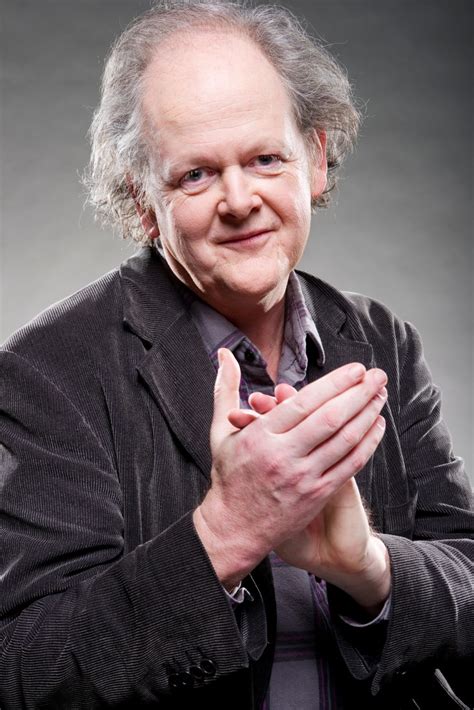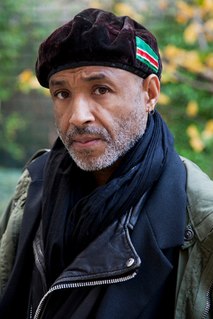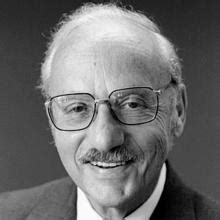A Quote by Gabriel Garcia Marquez
In all the houses keys to memorizing objects and feelings had been written. But the system demanded so much vigilance and moral strength that many succumbed to the spell of an imaginary reality, one invented by themselves, which was less practical for them but more comforting.
Related Quotes
Many painters had a clear idea of what fractals are. Take a French classic painter named Poussin. Now, he painted beautiful landscapes, completely artificial ones, imaginary landscapes. And how did he choose them? Well, he had the balance of trees, of lawns, of houses in the distance. He had a balance of small objects, big objects, big trees in front and his balance of objects at every scale is what gives to Poussin a special feeling.
The fact is that many countries that call themselves free succumbed to medical dictatorship...people are sicker and less healthy...A country which mandates vaccination is not a free country...It is a country of zombies who do what they are told by vested interests who intimidate them and use them to make money.
MORAL LAW, Evidence of.- Man has been subjected by his Creator to the moral law, of which his feelings, or conscience as it is sometimes called, are the evidence with which his Creator has furnished him. ... The moral duties which exist between individual and individual in a state of nature, accompany them into a state of society ... their Maker not having released them from those duties on their forming themselves into a nation.
Under theocracies and other authoritarian regimes, the rulers are the moral authorities. Under genuine democracy some basic values are entrenched in the legal system, which is expected to be under democratic vigilance, and others are left to the person or the group, which ideally debate moral problems in a rational, free and cooperative manner.
For me what was amazing was consumerism of people survived after Katrina. You see in a yard that the SUV is gone but they left the Ferrari or the more expensive car because it just wasn't practical. They couldn't get all their stuff in it. So you see this beautiful car totally destroyed; motorcycles. You walk into these houses - we were with the New Orleans police when they would go into the houses - we'd go through these houses and we were just amazed at how much stuff that had been accumulated and how much was left behind.
I had an incredibly full life with my imagination: I used to have all sorts of trolls and things; I had a wonderful world around my toys and invented people. I don't mean I had imaginary friends; I just had this big imagination thing going on. I didn't need any imaginary friends, because I had so much other stuff going on.
The practical man demands an appearance of reality at least. Always dealing in the concrete, he regards mathematical terms not as symbols or thought but as images of reality. A system acceptable to the mathematician because of its inner consistency may appear to the practical man to be full of contradictions because of the incomplete manner in which it represents reality.
If the world is an objective reality that exists independently of us, then humans themselves, even in their own eyes, are nothing more than objects, and their life stories merely a series of disconnected historical accidents, which they may wonder at, but which they themselves have nothing to do with.
The deeper we look, the more we shall be convinced that the one thing wanting, which we must strive to acquire before all others, is strength strength physical, strength mental, strength moral, but above all strength spiritual which is the one inexhaustible and imperishable source of all the others. If we have strength everything else will be added to us easily and naturally.
In the camp, this meant committing my verse-many thousands of lines-to memory. To help me with this I improvised decimal counting beads and, in transit prisons, broke up matchsticks and used the fragments as tallies. As I approached the end of my sentences I grew more confident of my powers of memory, and began writing down and memorizing prose-dialogue at first, but then, bit by bit, whole densely written passages. My memory found room for them! It worked. But more and more of my time-in the end as much as one week every month-went into the regular repetition of all I had memorized.
I think, unfortunately, many opinion leaders in Germany - including government officials, politicians, social service bureaucrats and so forth - they are in the private system, and they get paid the private insurance by their employer. So for them this is the best of two worlds: They have some more expensive and privileged access, but they do not have to pay for it themselves. This is a system which is both inefficient and unfair at the same time, but it is defended by those who profit from this system, and this includes many opinion leaders and many politicians.
There was a sort of irony in the fact that these [superhero] characters - many of whom in that period, the Golden Age, had been evolved to fight the Nazis - were themselves very much in the Nazi ideal. The idea that you can solve problems through physical strength, by being stronger and more dominant and more powerful - that is fascism. I mean, that's it, that's the essence of fascism. I don't think the creators of the superheroes or the kids who were reading them at the time were the slightest bit aware of it.







































